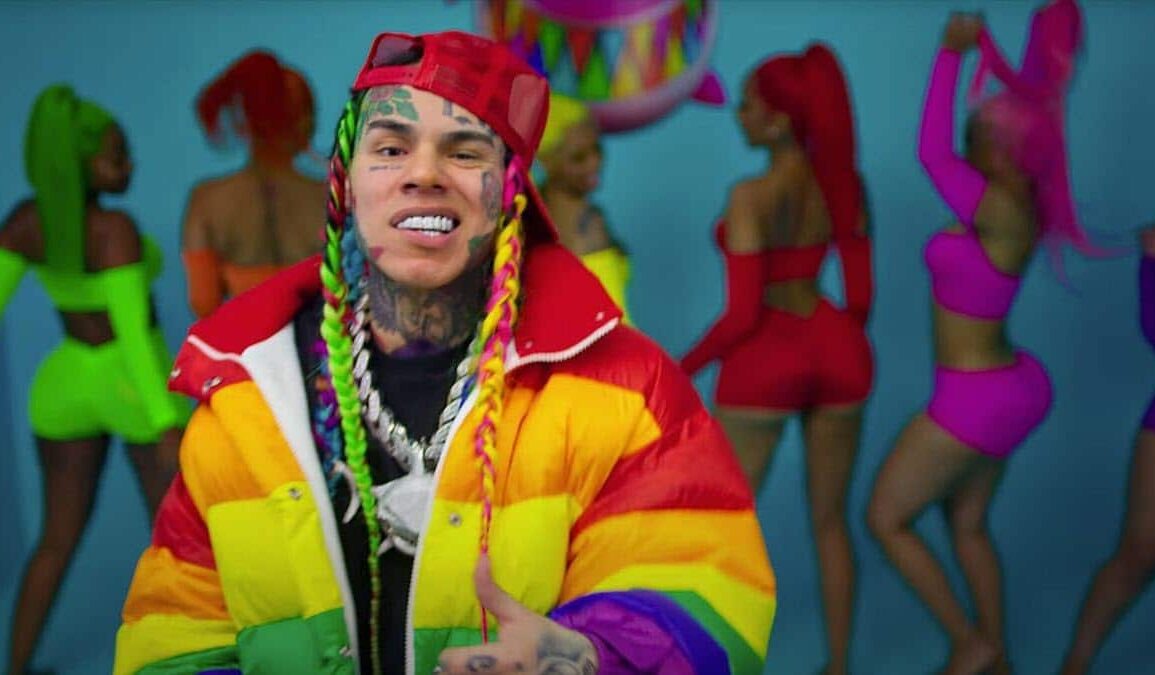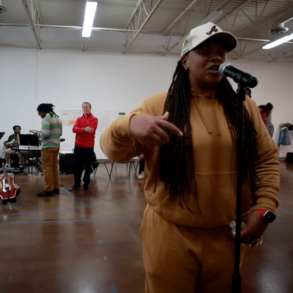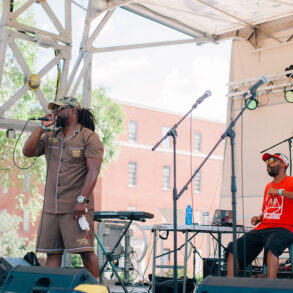Rap songs represent a vibrant and influential genre within the music industry, characterized by its distinctive rhythmic delivery, poetic lyrics, and dynamic vocal performances. Rooted in African American culture and urban communities, rap music emerged in the late 1970s and has since become a global phenomenon, shaping popular culture and influencing artists across various genres.
Lyrically, rap songs cover a wide range of topics, from social commentary and political activism to personal storytelling and self-expression. Rappers use their verses to address issues such as race, inequality, identity, and the challenges of everyday life, offering insights into their own experiences and perspectives. The genre’s emphasis on wordplay, metaphor, and storytelling allows artists to convey complex ideas and emotions with precision and creativity, engaging listeners on both intellectual and emotional levels.
Musically, rap songs are characterized by their innovative beats, catchy hooks, and intricate rhymes. Producers play a crucial role in crafting the sonic landscape of rap music, incorporating elements of funk, soul, jazz, and electronic music to create dynamic and immersive soundscapes. Rappers’ vocal performances range from aggressive and energetic to smooth and melodic, showcasing their unique styles and personalities.
Rap songs hold a special place in the cultural zeitgeist, serving as a platform for artists to express themselves, challenge societal norms, and connect with audiences on a profound level. From underground mixtapes to chart-topping hits, rap music continues to push boundaries, inspire creativity, and spark conversations about identity, representation, and social change.
1. Mind Playing Tricks On Me by Geto Boys
“Mind Playing Tricks On Me” by Geto Boys is a classic hip-hop track that delves into the complexities of mental health, paranoia, and the struggles of urban life. Released in 1991 as part of their album “We Can’t Be Stopped,” the song has become an iconic anthem in hip-hop culture, known for its gritty realism and introspective lyrics.
Lyrically, “Mind Playing Tricks On Me” offers a raw and candid portrayal of the psychological toll of life in the inner city. The lyrics depict the experiences of the protagonists as they grapple with fear, anxiety, and the haunting specter of violence. Each verse offers a glimpse into the inner workings of their minds, revealing the paranoia and trauma that accompany their daily existence.
Musically, “Mind Playing Tricks On Me” is characterized by its haunting melody, eerie samples, and laid-back groove. The song’s minimalist production allows the poignant lyrics to take center stage, while the atmospheric beats and haunting instrumentation create a sense of tension and unease. The delivery of the verses by Scarface, Willie D, and Bushwick Bill is marked by their raw emotion and gritty storytelling, drawing listeners into the harrowing realities of their lives.
“Mind Playing Tricks On Me” has earned widespread acclaim for its vivid storytelling, social commentary, and emotional depth. It has been embraced by fans of hip-hop as a timeless classic that captures the essence of urban life and the human condition. The song’s exploration of mental health and the struggles of inner-city living continues to resonate with listeners, shedding light on important social issues and sparking conversations about the impact of trauma on individuals and communities.
2. Juicy by Notorious B.I.G
“Juicy” by Notorious B.I.G. is a seminal hip-hop track that serves as both an autobiographical reflection and a celebration of success and perseverance. Released in 1994 as part of his debut album “Ready to Die,” the song has become an iconic anthem in hip-hop culture, known for its infectious beat, catchy hook, and vivid storytelling.
Lyrically, “Juicy” chronicles the rise of Notorious B.I.G. from humble beginnings to becoming a rap superstar. The lyrics paint a vivid picture of his early struggles growing up in Brooklyn, New York, and his aspirations to achieve success and escape poverty. Through his candid reflections, Biggie shares personal anecdotes, experiences, and aspirations, inviting listeners into his world and journey.
Musically, “Juicy” is characterized by its laid-back groove, soulful samples, and catchy chorus. The song’s smooth production, featuring a sample from Mtume’s “Juicy Fruit,” provides the perfect backdrop for Biggie’s lyrical flow and storytelling prowess. His confident delivery and charismatic persona shine through, making the song instantly recognizable and irresistible to listeners.
“Juicy” has earned widespread acclaim for its authenticity, relatability, and timeless appeal. It has been embraced by fans of hip-hop as a classic that encapsulates the essence of the genre and the spirit of resilience and triumph. The song’s message of perseverance, self-belief, and seizing opportunities continues to resonate with audiences around the world, inspiring countless aspiring artists to chase their dreams and overcome obstacles to achieve success.
3. Straight Outta Compton by N.W.A.
“Straight Outta Compton” is a rap song by the American hip hop group N.W.A. (Niggaz Wit Attitudes), released in 1988 as the title track of their debut studio album of the same name. The song was written by N.W.A. members Ice Cube, Eazy-E, and MC Ren, with Dr. Dre producing the track.
“Straight Outta Compton” is considered one of the seminal tracks in gangsta rap, a subgenre of hip hop that emerged in the late 1980s. The song’s lyrics depict the realities of life in Compton, California, a city known for its high crime rates and gang activity. N.W.A. members address issues such as police brutality, racial profiling, and socio-economic inequality, providing a raw and unapologetic portrayal of urban life in America.
The song’s aggressive delivery, profanity-laced lyrics, and confrontational tone sparked controversy upon its release, drawing criticism from law enforcement officials and conservative groups. However, “Straight Outta Compton” also resonated with listeners who identified with its portrayal of urban struggle and defiance against authority.
Despite its controversial subject matter, “Straight Outta Compton” became a commercial success, helping to establish N.W.A. as one of the most influential and iconic groups in hip hop history. The song’s impact on the genre is profound, as it laid the groundwork for subsequent generations of rappers to address social and political issues in their music. Additionally, the album “Straight Outta Compton” is widely regarded as a classic of hip hop, and its title track remains one of N.W.A.’s most famous and enduring songs.
4. The World Is Yours by Nas
“The World Is Yours” is a song by American rapper Nas, released in 1994 as the third single from his debut studio album, “Illmatic.” The song was produced by Pete Rock, with additional production by Nas himself.
“The World Is Yours” is widely regarded as one of Nas’s most iconic and influential tracks. The song’s lyrics reflect on the struggles and aspirations of life in the inner city, with Nas expressing a sense of determination and ambition to overcome adversity and achieve success. The chorus, which samples jazz musician Ahmad Jamal’s “I Love Music,” features the memorable line: “Whose world is this? The world is yours, the world is yours.”
The song’s production, characterized by its smooth jazz samples and laid-back groove, perfectly complements Nas’s introspective lyrics and poetic flow. “The World Is Yours” received widespread acclaim from critics and fans alike, with many praising Nas’s lyricism and storytelling ability.
The music video for “The World Is Yours” features Nas performing in various urban settings, interspersed with footage of him contemplating life and his surroundings. The video received heavy rotation on music television channels and helped further solidify Nas’s status as one of the leading voices in hip hop.
“The World Is Yours” has since become a classic of the genre and has been referenced and sampled by numerous artists in hip hop and beyond. Its enduring popularity and timeless message continue to resonate with listeners, making it one of Nas’s signature songs and a standout track in the history of hip hop.
5. Dear Mama by 2pac
“Dear Mama” by 2Pac is a heartfelt hip-hop ballad that pays homage to the rapper’s mother while delving into the struggles and hardships they faced together. Released in 1995 as part of his album “Me Against the World,” the song stands as one of 2Pac’s most poignant and introspective tracks, showcasing his lyrical depth and emotional vulnerability.
Lyrically, “Dear Mama” is a deeply personal and autobiographical reflection on 2Pac’s upbringing and the unwavering support and love he received from his mother, Afeni Shakur. The lyrics paint a vivid picture of their tumultuous relationship, marked by poverty, addiction, and adversity, yet also filled with moments of love, sacrifice, and resilience. 2Pac expresses gratitude for his mother’s strength, guidance, and unwavering faith, acknowledging her as a source of inspiration and motivation in his life.
Musically, “Dear Mama” is characterized by its soulful melody, smooth groove, and heartfelt delivery. The song’s production, featuring a sample of “Sadie” by The Spinners, sets a nostalgic and reflective tone, providing a fitting backdrop for 2Pac’s introspective lyrics. His emotive flow and poignant storytelling draw listeners in, evoking empathy and understanding for the struggles he and his mother endured.
“Dear Mama” has earned widespread acclaim for its honesty, authenticity, and emotional resonance. It has been embraced by fans of hip-hop as a classic that transcends the genre, offering a glimpse into 2Pac’s humanity and the complexities of family relationships. The song’s message of love, gratitude, and resilience continues to resonate with listeners, inspiring them to cherish and honor the bonds of family and the sacrifices made on their behalf.
6. Rapper’s Delight by The Sugarhill Gang
“Rapper’s Delight” by The Sugarhill Gang is a pioneering hip-hop track that played a crucial role in popularizing the genre and introducing it to mainstream audiences. Released in 1979 as a single, the song is widely regarded as one of the first commercially successful hip-hop recordings and has since become an iconic anthem in the history of rap music.
Lyrically, “Rapper’s Delight” is a playful and boastful showcase of MCing skills, featuring witty rhymes, clever wordplay, and braggadocious verses. The song’s three MCs – Wonder Mike, Big Bank Hank, and Master Gee – take turns trading verses, showcasing their lyrical prowess and charismatic delivery. The lyrics touch on themes such as partying, bragging rights, and the art of rapping itself, setting the stage for the playful and exuberant spirit that would come to define hip-hop culture.
Musically, “Rapper’s Delight” is characterized by its infectious groove, catchy bassline, and funky rhythm. The song’s production, featuring a sample of Chic’s “Good Times,” provides a lively and energetic backdrop for the MCs’ rhymes, creating an irresistible party atmosphere that captivates listeners from start to finish. The song’s playful cadence and memorable hook make it a timeless classic that continues to be celebrated and enjoyed by fans of all ages.
“Rapper’s Delight” holds a special place in the history of hip-hop as a groundbreaking and influential track that helped pave the way for the genre’s global success. Its infectious energy, catchy lyrics, and irresistible beat have made it a staple of hip-hop culture and a beloved anthem for generations of fans around the world.
7. Sucker MC’s by Run-D.M.C
“Sucker MC’s” by Run-D.M.C. is a seminal hip-hop track that helped shape the landscape of the genre in the early 1980s. Released in 1983 as the B-side to their debut single “It’s Like That,” the song is celebrated for its raw lyricism, minimalist production, and iconic flow, making it a classic in hip-hop history.
Lyrically, “Sucker MC’s” is a bold declaration of Run-D.M.C.’s dominance and skill as MCs. The song’s verses are filled with boasts, taunts, and witty wordplay, showcasing the group’s confidence and lyrical dexterity. Run-D.M.C. assert their superiority over lesser MCs, proclaiming their status as true masters of the craft and dismissing their competitors as “sucker MC’s.” The lyrics are delivered with precision and swagger, embodying the essence of hip-hop bravado and competitive spirit.
Musically, “Sucker MC’s” is characterized by its stripped-down production and minimalist beats. The song features a sparse arrangement, with little more than a drum machine and a looped sample providing the backing track. This simplicity allows the focus to remain squarely on the MCs’ vocals, highlighting their dynamic delivery and lyrical prowess. The song’s infectious rhythm and catchy hooks make it a standout track that has stood the test of time.
“Sucker MC’s” is regarded as a groundbreaking track that helped establish Run-D.M.C. as pioneers of hip-hop music. Its bold lyrics, innovative production, and memorable flow have cemented its status as a classic in the genre, influencing countless artists and shaping the direction of hip-hop for years to come.
8. The Message by Grandmaster Flash and the Furious Five
“The Message” is a seminal hip hop song by Grandmaster Flash and the Furious Five, released in 1982. It is widely regarded as one of the genre’s greatest and most influential tracks.
“The Message” was groundbreaking for its socially conscious lyrics, which provided a gritty portrayal of inner-city life in New York City. The song’s verses address issues such as poverty, crime, drug addiction, and urban decay, offering a raw and unflinching look at the realities faced by many residents of the city’s marginalized communities.
Grandmaster Flash and the Furious Five’s delivery of “The Message” was revolutionary for its time, with Melle Mel’s urgent and impassioned vocals driving home the song’s powerful message. The chorus, “It’s like a jungle sometimes; it makes me wonder how I keep from going under,” became iconic and is often cited as one of the most memorable lines in hip hop history.
“The Message” was a commercial success, reaching the top 10 on the Billboard Hot R&B/Hip-Hop Songs chart and garnering widespread critical acclaim. It is credited with elevating hip hop from its party-oriented roots to a form of social commentary and political expression.
The song’s impact on the genre cannot be overstated, as it paved the way for future generations of hip hop artists to address social issues in their music. “The Message” remains a timeless classic and a defining moment in the evolution of hip hop as a cultural force.
9. Lose Yourself by Eminem
“Lose Yourself” by Eminem is a groundbreaking hip-hop anthem that encapsulates the struggles, determination, and triumphs of pursuing one’s dreams against all odds. Released in 2002 as part of the soundtrack for the film “8 Mile,” the song quickly became one of Eminem’s most iconic and commercially successful tracks, earning critical acclaim and numerous accolades, including an Academy Award for Best Original Song.
Lyrically, “Lose Yourself” is a vivid and introspective portrayal of Eminem’s own journey as an aspiring rapper striving to break into the music industry. The lyrics depict the challenges and obstacles he faced growing up in a disadvantaged environment, as well as the pressure and self-doubt that accompanied his pursuit of success. The song’s powerful narrative and vivid imagery paint a picture of resilience, perseverance, and determination, urging listeners to seize the moment and make the most of every opportunity.
Musically, “Lose Yourself” is characterized by its driving beat, haunting piano riff, and Eminem’s dynamic delivery. The song’s production, featuring a signature guitar riff and a pulsating rhythm, creates a sense of urgency and intensity that mirrors the emotional weight of the lyrics. Eminem’s rapid-fire flow and impassioned delivery captivate listeners, drawing them into the narrative and conveying the urgency of his message.
“Lose Yourself” has become one of Eminem’s most enduring and beloved songs, resonating with audiences around the world as an anthem of empowerment, perseverance, and self-belief. Its timeless message of seizing the moment and overcoming adversity continues to inspire listeners of all ages and backgrounds, solidifying its place as a classic in the pantheon of hip-hop music.
10. Fight The Power by Public Enemy
“Fight the Power” is a politically charged hip hop song by the American rap group Public Enemy, released in 1989. The song was written by members of Public Enemy, including Chuck D and Hank Shocklee, with production by The Bomb Squad.
“Fight the Power” is characterized by its aggressive lyrics, dense production, and powerful social commentary. The song addresses issues of racism, oppression, and social injustice, calling for resistance and empowerment among marginalized communities. The chorus, “Fight the power!,” became a rallying cry for activists and protesters seeking social change.
“Fight the Power” gained widespread acclaim for its boldness and urgency, and it quickly became an anthem for the civil rights and hip hop movements. The song was featured prominently in Spike Lee’s film “Do the Right Thing,” where it served as the theme song and underscored the film’s themes of racial tension and activism.
The impact of “Fight the Power” extended beyond the realm of music, as it inspired and galvanized generations of activists and artists to speak out against injustice. The song’s legacy as a symbol of resistance and empowerment continues to resonate today, making it one of the most iconic and enduring tracks in hip hop history.
11. Nuthin’ But A ‘G’ Thang by Dr. Dre
“Nuthin’ But A ‘G’ Thang” by Dr. Dre is a quintessential West Coast hip-hop anthem that epitomizes the laid-back vibe and gangsta rap aesthetic of the early 1990s. Released in 1992 as the lead single from his debut studio album “The Chronic,” the song is celebrated for its smooth production, catchy hooks, and iconic verses, making it a classic in the genre.
Lyrically, “Nuthin’ But A ‘G’ Thang” is a celebration of the West Coast hip-hop lifestyle, with Dr. Dre and featured artist Snoop Dogg delivering vivid depictions of California culture, street life, and partying. The lyrics are filled with boasts, braggadocio, and clever wordplay, reflecting the confidence and swagger of the artists as they navigate the streets of Los Angeles. The song’s verses are interspersed with catchy hooks and memorable one-liners, creating an infectious and anthemic vibe that resonates with listeners.
Musically, “Nuthin’ But A ‘G’ Thang” is characterized by its laid-back groove, funky bassline, and G-funk production style. The song’s production, featuring a sample of Leon Haywood’s “I Want’a Do Something Freaky to You,” sets a mellow and atmospheric tone that perfectly complements the smooth delivery of the lyrics. Dr. Dre’s masterful production techniques, including his use of synthesizers and live instrumentation, create a rich and immersive sonic experience that has become synonymous with the West Coast hip-hop sound.
“Nuthin’ But A ‘G’ Thang” has become one of Dr. Dre’s signature songs and a landmark track in hip-hop history. Its influence extends far beyond the realms of music, shaping the cultural landscape and serving as a defining moment in the evolution of hip-hop as a genre. The song’s enduring popularity and cultural impact solidify its place as a timeless classic in the pantheon of hip-hop music.
12. In Da Club by 50 Cent
“In Da Club” is a hip hop song by American rapper 50 Cent, released in 2003 as the lead single from his debut studio album, “Get Rich or Die Tryin’.” The song was written by 50 Cent (Curtis Jackson), Dr. Dre, and Mike Elizondo, with production handled by Dr. Dre and Elizondo.
“In Da Club” is known for its catchy beat, infectious hook, and party-centric lyrics. The song’s lyrics boast about 50 Cent’s lavish lifestyle, wealth, and success in the music industry. The chorus features the memorable line: “Go, go, go, go, go, go, go, go, go, go, go shorty, it’s your birthday,” making it a popular choice for celebrations and club settings.
The song’s production, characterized by its heavy bassline and minimalist instrumentation, helped it become a massive commercial success. “In Da Club” topped the charts in multiple countries and became one of the best-selling singles of 2003. It also received critical acclaim for its infectious energy and catchy hook.
The music video for “In Da Club,” directed by Phillip Atwell, features 50 Cent performing at a nightclub and enjoying the trappings of fame and success. The video received widespread airplay on music channels like MTV and helped further propel the song’s popularity.
“In Da Club” remains one of 50 Cent’s most successful and enduring songs, and it is often cited as one of the greatest hip hop songs of all time. Its catchy hook and memorable lyrics have made it a staple in party playlists and a cultural touchstone in the realm of hip hop music.
13. Keep Ya Head Up by 2pac
“Keep Ya Head Up” by 2Pac is a socially conscious hip-hop anthem that addresses issues of inequality, empowerment, and resilience, particularly focusing on uplifting women and advocating for their rights. Released in 1993 as part of his album “Strictly 4 My N.I.G.G.A.Z.,” the song stands as one of 2Pac’s most compassionate and introspective tracks, showcasing his lyrical depth and commitment to social justice.
Lyrically, “Keep Ya Head Up” is a heartfelt and empathetic reflection on the struggles faced by women in society, particularly those living in poverty and facing discrimination. The lyrics offer words of encouragement, solidarity, and empowerment, urging women to maintain their dignity, self-worth, and resilience in the face of adversity. 2Pac addresses issues such as single motherhood, domestic violence, and societal pressures, emphasizing the importance of supporting and uplifting one another.
Musically, “Keep Ya Head Up” is characterized by its soulful melody, smooth groove, and poignant lyrics. The song’s production, featuring a sample of Zapp’s “Be Alright,” creates a laid-back and uplifting atmosphere that complements 2Pac’s compassionate delivery. His emotive flow and heartfelt vocals convey a sense of empathy and sincerity, drawing listeners into the song’s message of hope and solidarity.
“Keep Ya Head Up” has earned widespread acclaim for its positive message, social commentary, and emotional resonance. It has been embraced by fans of hip-hop as a timeless classic that transcends the genre, offering a poignant reminder of the struggles faced by marginalized communities and the importance of standing up for justice and equality. The song’s enduring popularity and cultural impact solidify its place as a landmark track in the history of hip-hop music.
14. Ms. Jackson by Outkast
“Ms. Jackson” by Outkast is a hip-hop classic that delves into the complexities of relationships, family dynamics, and personal accountability. Released in 2000 as the lead single from their album “Stankonia,” the song became a massive hit, topping charts worldwide and earning critical acclaim for its innovative production and introspective lyrics.
Lyrically, “Ms. Jackson” addresses the aftermath of a failed relationship and the impact it has on both parties involved, as well as their families. The lyrics express regret, remorse, and a desire for reconciliation, as the protagonist seeks to mend the broken bonds with his former partner and her mother, “Ms. Jackson.” The song’s verses are marked by candid reflections on past mistakes, misunderstandings, and the complexities of love, showcasing Outkast’s lyrical depth and storytelling prowess.
Musically, “Ms. Jackson” is characterized by its catchy hook, infectious beat, and eclectic instrumentation. The song’s production, featuring a prominent sample of a drum loop from the song “Strawberry Letter 23” by The Brothers Johnson, creates a vibrant and dynamic sonic landscape that blends elements of funk, soul, and hip-hop. Outkast’s distinctive flow and delivery add to the song’s infectious energy, making it a standout track that resonates with listeners of all backgrounds.
“Ms. Jackson” has become one of Outkast’s most iconic and enduring songs, earning widespread acclaim for its creativity, innovation, and emotional resonance. It has been embraced by fans of hip-hop as a timeless classic that continues to captivate audiences with its relatable lyrics, infectious groove, and heartfelt message of reconciliation and forgiveness. The song’s impact and cultural significance solidify its place as a landmark track in the history of hip-hop music.
15. Hard Knock Life by Jay-Z
“Hard Knock Life (Ghetto Anthem)” is a hip hop song by American rapper Jay-Z, released in 1998 as the second single from his third studio album, “Vol. 2… Hard Knock Life.” The song samples the chorus from the song “It’s the Hard Knock Life” from the musical “Annie.”
“Hard Knock Life” is known for its catchy chorus, in which Jay-Z raps about the struggles and challenges of life in the ghetto. The song’s lyrics reflect on poverty, crime, and the hustle of street life, while also expressing determination and resilience in the face of adversity.
The song’s production, handled by Mark 45 King, features a prominent sample of the chorus from “It’s the Hard Knock Life,” which adds a nostalgic and ironic touch to the song’s gritty subject matter. The chorus, with its infectious melody and catchy hook, helped propel “Hard Knock Life” to commercial success.
“Hard Knock Life” became one of Jay-Z’s signature songs and one of the defining tracks of his early career. It reached the top 10 on the Billboard Hot 100 chart and earned critical acclaim for its creativity and innovation. The song’s impact extended beyond the realm of hip hop, as it introduced a new audience to the world of rap music and became a cultural phenomenon in its own right.
This post was originally published on this site be sure to check out more of their content.








